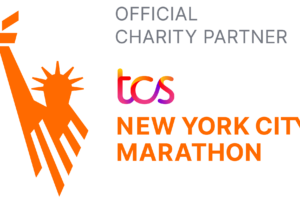By Tom Hogan, Secretary for the National Blood Clot Alliance
By now, most DVT/PE survivors are aware of the new oral anticoagulants undergoing Phase III Trials. Are these medications going to be a replacement for Coumadin/warfarin or are they in the near future, going to target a specific treatment? This update will address all three medications:
- Rivaroxaban (Bayer/Ortho-McNeil, Division of Ortho-McNeil Janssen Pharmaceuticals) – In the U.S., rivaroxaban is the closest to being approved by the Food and Drug Administration (FDA) of the three new oral anticoagulants. Rivaroxaban (Xarelto) has received its license in the European Union and Canada for prevention of DVT following hip and knee replacements. In the U.S., it is also being reviewed for knee and hip replacement anticoagulation. This past spring, rivaroxaban was reviewed by a FDA panel hearing which recommended it for approval. The FDA has sent the manufacturer a letter asking for more information regarding the medication before it receives any further evaluation. It is estimated that this product, once approved, will be available sometime in early 2010 for use in the U.S. in orthopedic surgery. Rivaroxaban proved to be superior to enoxaparin in prevention of DVT. Other trials being conducted are for atrial fibrillation, DVT/PE prophylaxis for medical and cancer patients, and treatment of DVT/PE.
- Dabigatran etexilate (Boehringer Ingelheim Pharmaceuticals) – Dabigatran has been approved for use in Europe and Canada for prevention of DVT following knee and hip replacement surgery. The medication has been shown to be non-inferior to enoxaparin. This medication has not yet been recommended for approval in the U.S. A recent study in stroke prevention in atrial fibrillatiion showed that dabigatran was non-inferior at a lower dose and superior at a higher dose than warfarin in prevention of stroke, and as safe or safer than warfarin depending on dose. It is anticipated that the product will be recommended for approval sometime in 2010 or 2011 for atrial fibrillation Other trials being conducted are for treatment of Acute Coronary Syndrome (ACS) and treatment of DVT/PE.
- Apixaban (Bristol-Myers Squibb/Pfizer/) –Apixaban is nearing completion from phase III testing in orthopedic surgery with ongoing trials in stroke prevention in atrial fibrillation, treatment of DVT/PE, DVT/PE prophylaxis in medical patients and in cancer patients, and treatment of Acute Coronary Syndrome (ACS). It is not anticipated that Apixaban will be available until late 2010 or 2011.
Pro’s of new oral anticoagulants:
- Medications affect anticoagulation rapidly. Because of this, initial treatment with heparin or low molecular weight heparin for patients with DVT or PE may not be necessary and there is no need to transition to warfarin.
- Likewise, the length of time medications affect anticoagulation remain in your system is shortened (short half-life), therefore, you are able to remain on medications until shortly before the surgery without having to bridge for surgeries (ex: Coumadin and Lovenox, Fragmin, Innohep).
- Medications do not require routine coagulation monitoring.
- Fewer food and drug interactions. No limitations with vitamin K intake.
Con’s of new oral anticoagulants:
- Shorter half-life can be dangerous in patients who often miss dosages. With Coumadin, its anticoagulant effects remain in your body longer.
- No reversal agents available, i.e. difficult to manage serious bleeds in case of emergency.
- No established monitoring anticoagulation test available at this time. This is of particular concern to patients with renal or hepatic disease or obesity where dose adjustments may be necessary.
- New medications will likely be more costly. Since Coumadin is available as a generic Warfarin, costs are cheaper.
The new breeds of oral anticoagulants, despite being able to improve qualify of life for patients will still have much needed research. For those patients on life-long Coumadin therapy, it will be several more years before there is enough data compiled to find out if any of these new medications are a viable alternative for life-long patients.





